
Thinkstock/Stockbyte/Getty Images
It is estimated that between 40 and 50 million Americans have acne, according to the American Academy of Dermatology. Acne does not always require medical intervention and can often be cleared up with diligent skin care practices. Natural remedies, like borage oil, claim to help treat acne; however, there is not enough evidence to prove that borage oil is safe or effective in treating acne. Consult a health care professional before using borage oil to treat your acne.
Symptoms
Acne usually appears as tiny bumps or pimples on the skin. It is caused when pores become blocked with excess oil and dirt. Some acne is severe and can also be very painful. Acne most often occurs on the face, chest and back, but it can appear anywhere on the body.
Borage Oil
Borage oil comes from the seed of the borage plant, or Borago officinalis. Borage oil is also known as bee bread, bee plant, borage seed oil, ox’s tongue and starflower oil. According to the Memorial Sloan-Kettering Cancer Center, studies on borage oil's effect on certain skin conditions, such as atopic eczema and infantile seborrheic dermatitis, were inconclusive.
Uses
Borage seed oil contains a high content of the essential fatty acid known as gamma-linolenic acid, or GLA, which reduces inflammation. As such, borage oil has reportedly been used to treat arthritis, chest congestion and infantile seborrheic dermatitis. Herbal practitioners may suggest it can be used topically or taken internally. Used topically, borage oil may help protect the skin and maintain moisture, help improve the general health of the skin and have an anti-inflammatory effect on the skin. However, there are no credible reports of it being used to successfully treat acne.
Warnings
Borage oil may have negative effects on your liver and should not be taken during pregnancy. It may also interact with other medications. Consult your doctor before taking borage oil.
Side Effects
Borage oil may cause premature labor in pregnant women. It may also cause nausea, headache, indigestion, bloating or constipation. Gamma-linoleic acid is reported to lower the seizure threshold, according to MSKCC.
Related Articles

Arnica for Acne
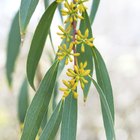
Eucalyptus Oil & Acne

Pycnogenol and Acne
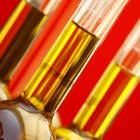
Jojoba Oil Benefits
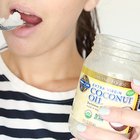
Skin Benefits of Eating Coconut Oil

Anise Seed Cautions and Side Effects

Uses for Castor Oil on the Skin

The Use of Neem Juice in Skin Care as ...

Lavender Oil & Acne

Peppermint Oil for a Cough

Castor Oil for Joint Pain

Carrot Oil for Acne

Mineral Oil Vs. Olive Oil
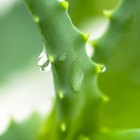
Aloe Ferox Benefits

Toxicity of Peppermint Oil

Seborrheic Dermatitis & Nutritional ...
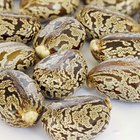
The Uses of Castor Oil for Healing
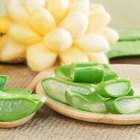
What Is Aloe Good For?

Aloe Vera Gel As a Wrinkle Reducer

What Are the Benefits of Extrapone ...
References
Writer Bio
Tamara Laschinsky began writing articles in 2008 to supplement her knowledge of alternative health and wellness practices. Her articles have been re-published on various websites and requested by readers across the globe. She holds a degree in business administration from Red River College.
Photo Credits
Thinkstock/Stockbyte/Getty Images